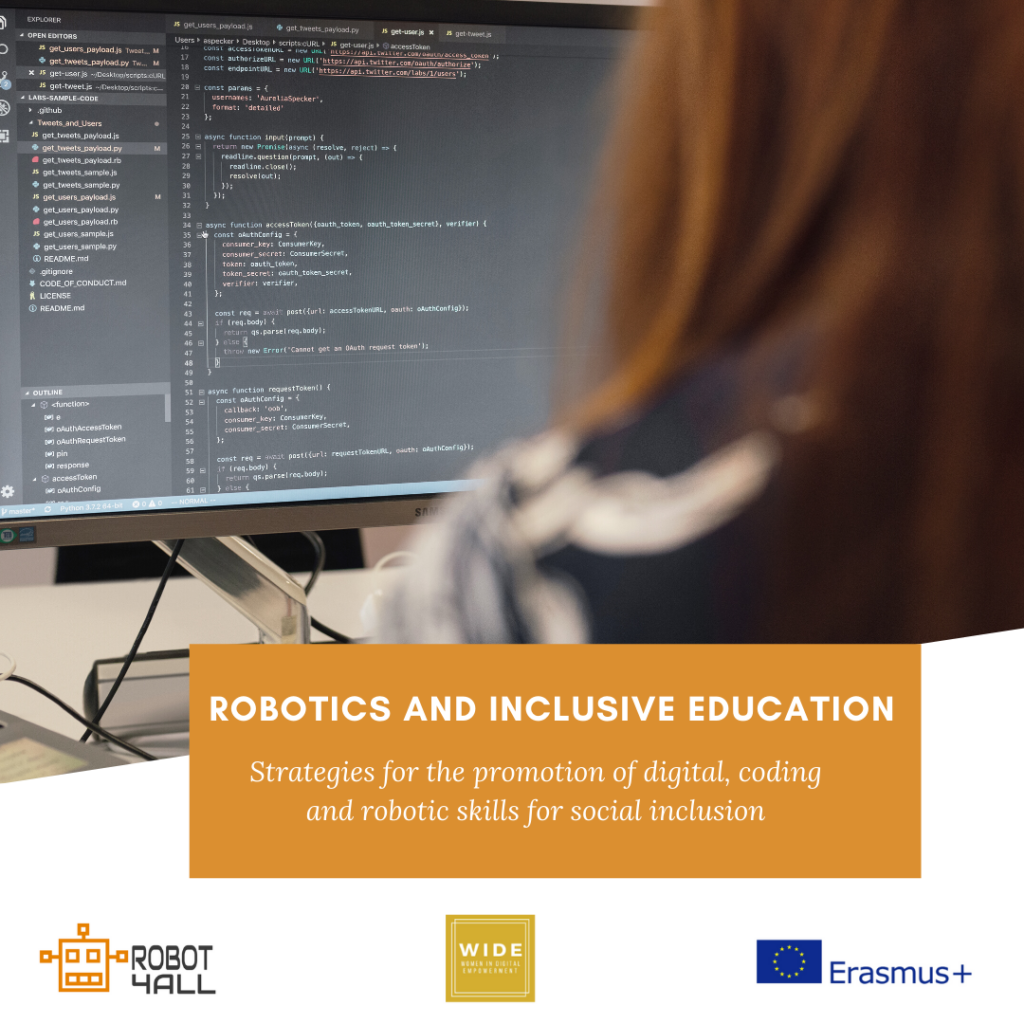Robot4All
Bridging the skills gap: Strategies for the promotion of digital, coding and robotic skills for social inclusion, equality, and access


Background
Europe’s future depends on its youth. Yet, opportunities are limited while youth unemployment, marginalization and social exclusion are threatening Europe’s greater asset for the future: young people’s human and social capital. There is still a great need for MS “to continue to work together to improve their employability, their integration in the labor market, their social inclusion and participation”. (Junker Speech, EC 2015).
Equipping young Europeans with the right skills has been reaffirmed by the 2016 Council Resolution on ‘A New Skills Agenda for an Inclusive and Competitive’ Europe which stated that skills are a pathway to employability and prosperity. However, skills gaps and mismatches are striking, 40% of employers cannot find people with the skills they need, whereas students leave E&T without being sufficiently prepared to enter the labor market.
VET is valued for fostering job-specific and transversal skills, facilitating the transition into employment and maintaining and updating the skills of the workforce according to sectoral, regional, and local needs. Although over 13 million learners are engaged in VET each year, forecasts in several M.S. indicate that there will be a shortage of people with VET qualifications in the future. Introducing coding and robotic skills to VET students, while strengthening the profiles of VET teachers are among the aims of the consortium.
‘Everyone should learn how to program, as it teaches you how to think’.
Steve Jobs Tweet
Promoting coding and robotics will help enrich VET provision of curricula while promoting better skills matching thus bridging the gap between Education and Training and the world of work.
The ROBOVET4ALL project aims:
- To promote the acquisition and achievement of skills and competences
- To promote social inclusion through innovative integrated approaches
- To enhance the access, participation and learning performance of disadvantaged learners
- To further strengthen key competences in VET
- To introduce systematic approaches to, and opportunities for, the continuous professional development of VET teachers
- To develop VET business partnerships aimed at promoting work-based learning in all its forms
- To strengthen the profile(s) of the teaching professions
- To promote open and innovative methods and pedagogies
The project pioneers in proposing to introduce coding and robotics to VET schools as an innovative way to address deficits, social exclusion, prejudice, and learning disparities.
Robotics is an effective, fascinating and motivating way to introduce students to coding which integrates all STEM fields. And promotes other employability skills such as: problem-solving, group work, leadership, creativity and initiative.
Design, development and evaluation of a complete tool kit and educational pack for developing, implementing and monitoring various strategies aiming to promote coding/robotics skills in VET schools.
A final virtual meeting was held on the 28th of August with the partners of the project. To close the project successfully, WIDE created a Booklet offering strategies for the promotion of digital, coding, and robotic skills for social inclusion.